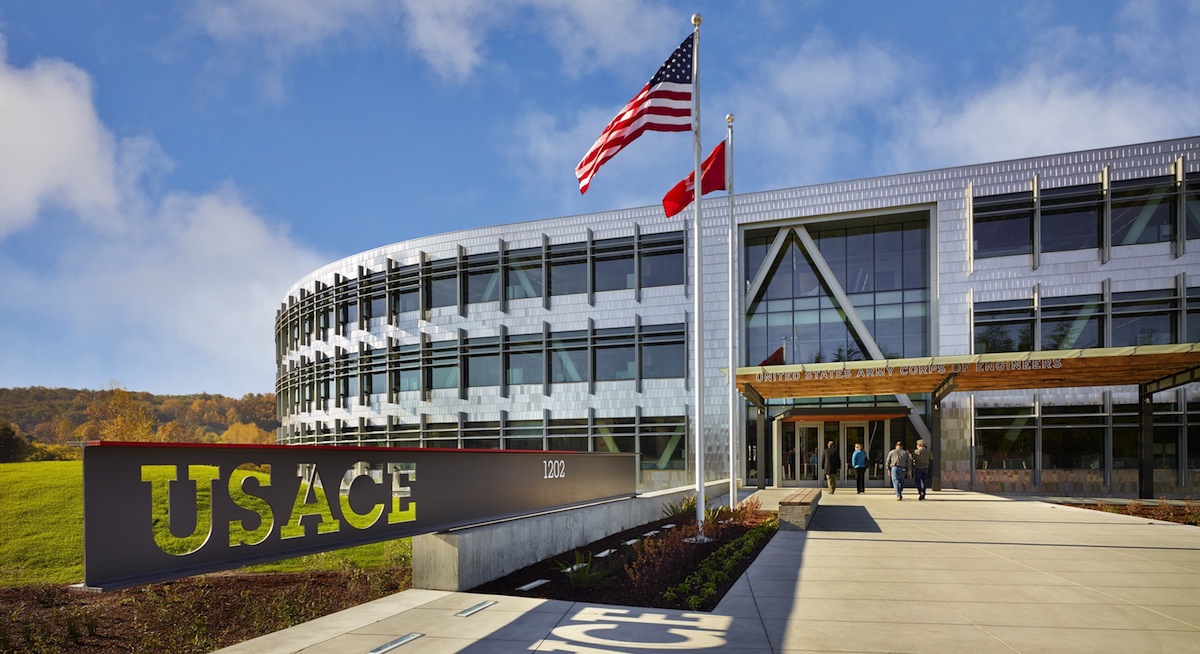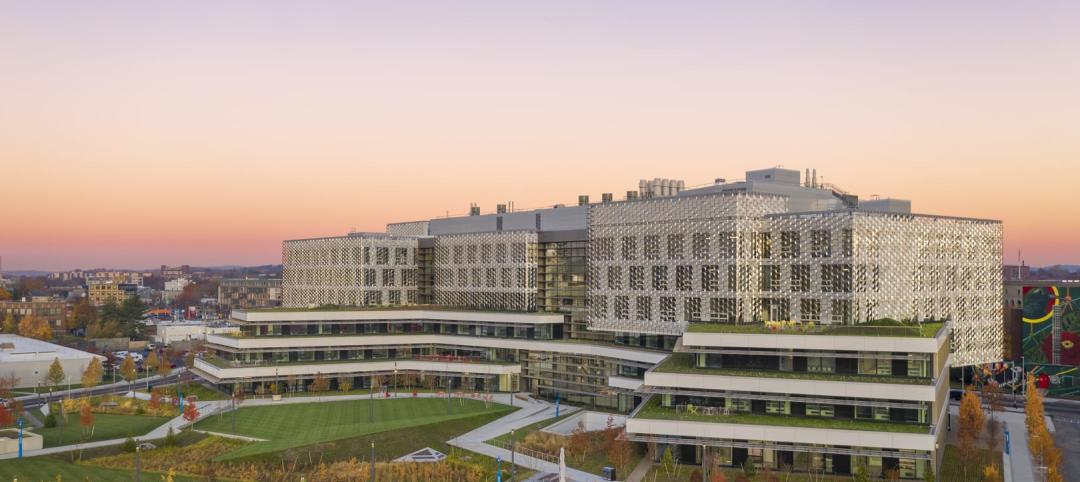The American Institute of Architects (AIA) and its Committee on the Environment (COTE) have selected the U.S. General Services Administration’s (GSA) Federal Center South Building 1202 in Seattle, as the recipient of the Top Ten Plus award. The Top Ten Plus, now its third year, recognizes one past AIA COTE Top Ten Project Award recipient which has quantifiable metrics that demonstrate the true impact the sustainable design has achieved.
The Federal Center South Building 1202, designed by ZGF Architects LLP and built by Sellen Construction, was selected in 2013 as a recipient of the AIA/COTE Top Ten Project Award program. More information on the design elements and images are available here.
The redevelopment project was part of the 2009 American Recovery and Reinvestment Act and was delivered on time and within the original $72 million budget. The new building transformed a previously toxic brownfield into a new standard for a high-performance, cost-effective, and sustainable workplace environment for the U.S. Army Corps of Engineers. Far from typical in government projects, the design and construction of the facility was completed in just 31 months as part of a rapid project delivery model.
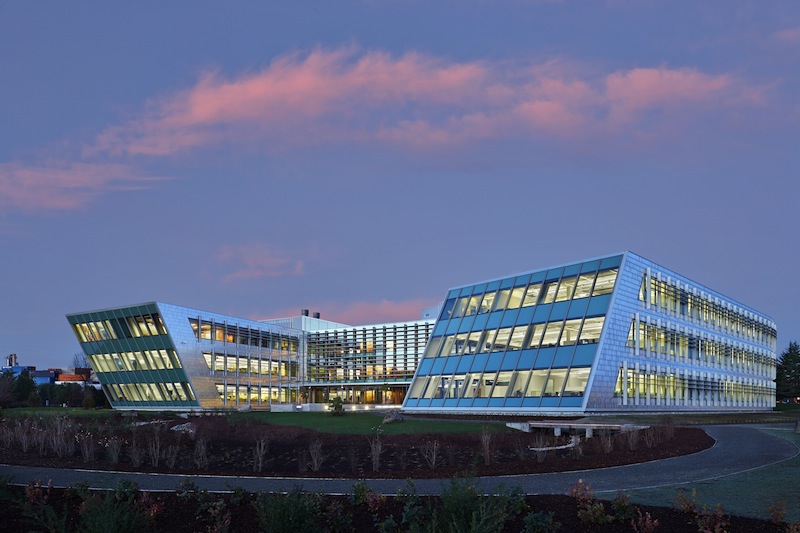
Following a one-year measurement and verification period, it was established that the building’s energy performance is meeting the goal of more than 30% better than ASHRAE 90.1—the benchmark for commercial building energy codes in the U.S.
After the first year, the facility’s metered energy performance has met every design target, including the contractually required energy performance and the AIA 2030 Commitment. At of the end of last year, the Federal Center South building was using 61% less energy than the national average for similar buildings and 46% less water than a current plumbing code defined baseline.
“This project demonstrates the success of performance-oriented contracting and the value of both energy modeling and post-occupancy monitoring,” said Todd Stine, AIA, partner at ZGF Architects LLP. “The energy modeling done in the design phase showed a $55,000 energy cost savings each year associated with the high-performance systems integrated into the building. The post-occupancy evaluation looked at energy and workplace performance and has been crucial in determining how to best optimize all facets of how the building was intended to function.”
The COTE Top Ten Plus jury commented, “We admired ZGF Architects for their persistence over time to improve both their understanding of the planned performance of the building and its actual performance; they were genuinely curious about how the building was working out. There are signs of science and research in the relationship between daylighting and employee performance, along with evidence that the building has caused an enhanced environmental culture amongst its occupants.”
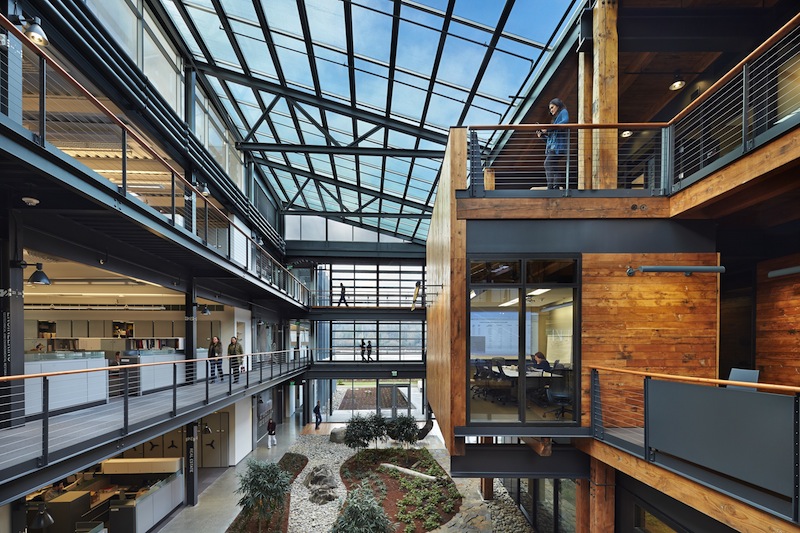
“The AIA COTE+ recognition is an honor and a testament to the teamwork between GSA, ZGF, and Sellen Construction to build a facility that not only exceeds GSA’s sustainability goals but delivers bottom line results that will save taxpayers money for years to come,” said GSA Regional Administrator George Northcroft.
To further enhance the building’s sustainable performance, the team developed, tested and evaluated enhancements to the base design during the design and construction of the project so that the GSA could incorporate upgrades into the project as funding became available. Through this process, the team was able to add rainwater harvesting, a geothermal system, enhanced lighting controls, an energy dashboard and improved glass in the main skylight.
This project was designed to meet GSA’s requirement for a building with a 50-year minimum lifespan, and mechanical equipment that lasts a minimum of 20 years. The campus site can also accommodate the 30-yearexpansion and redevelopment requirements for a number of federal agencies.
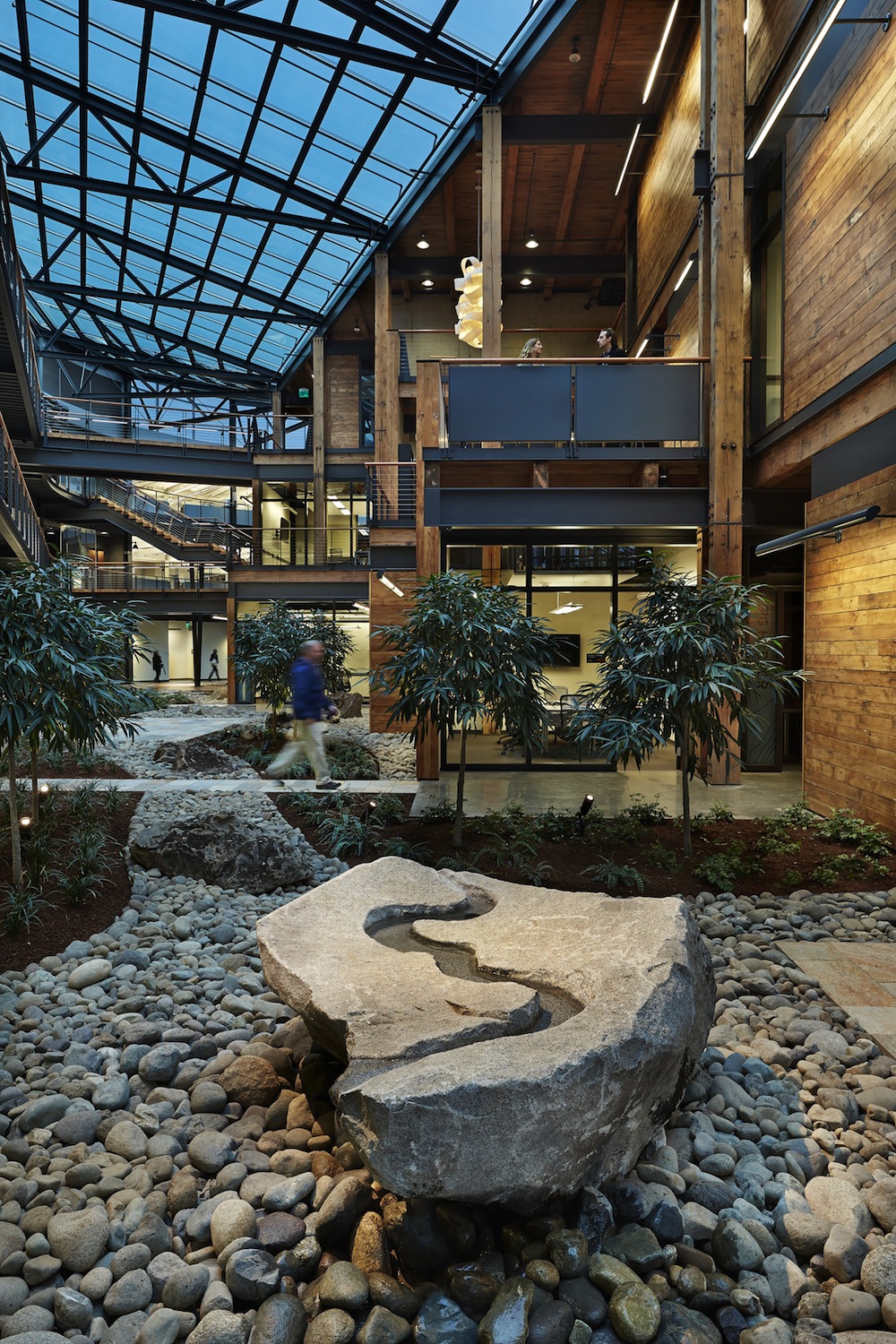
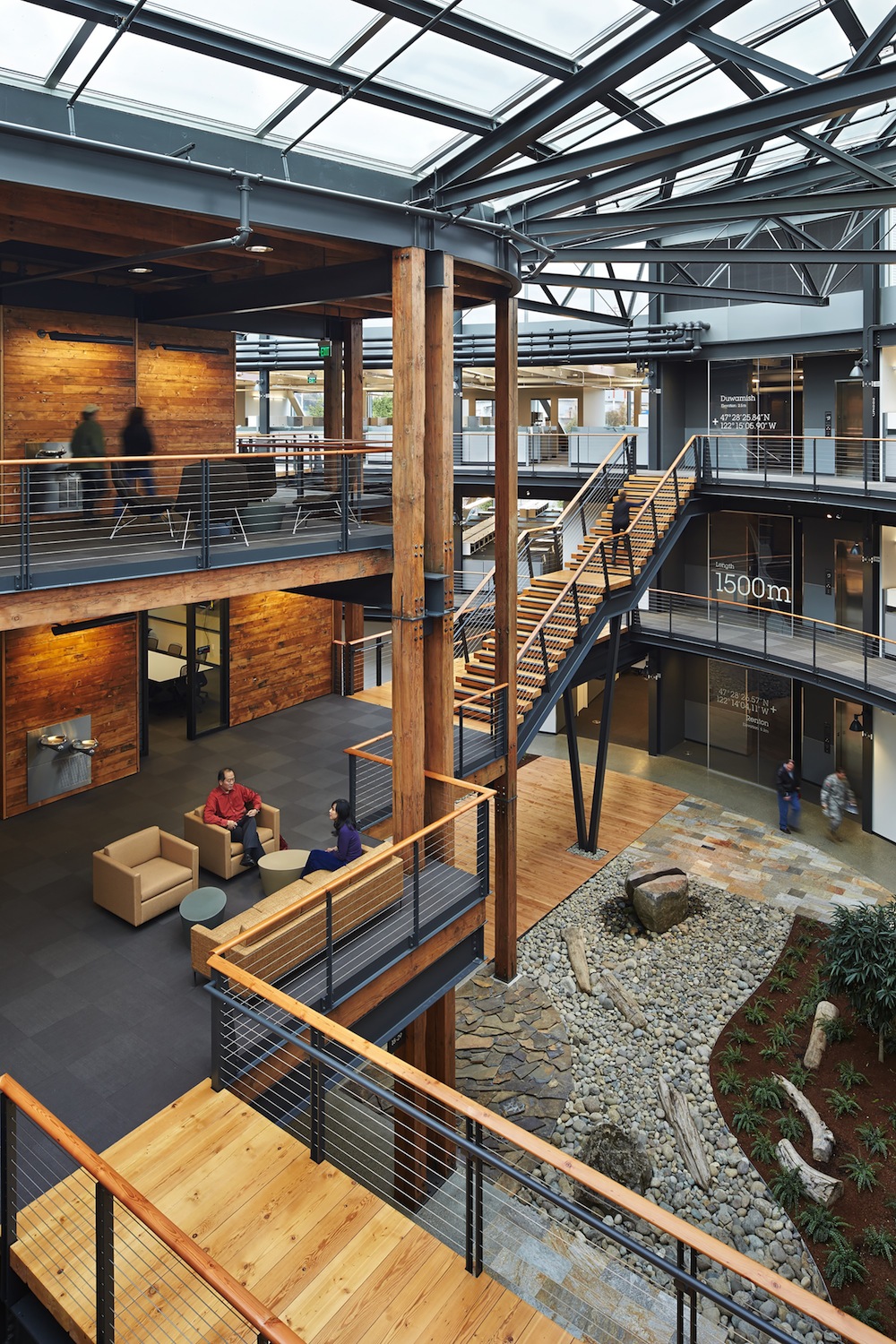
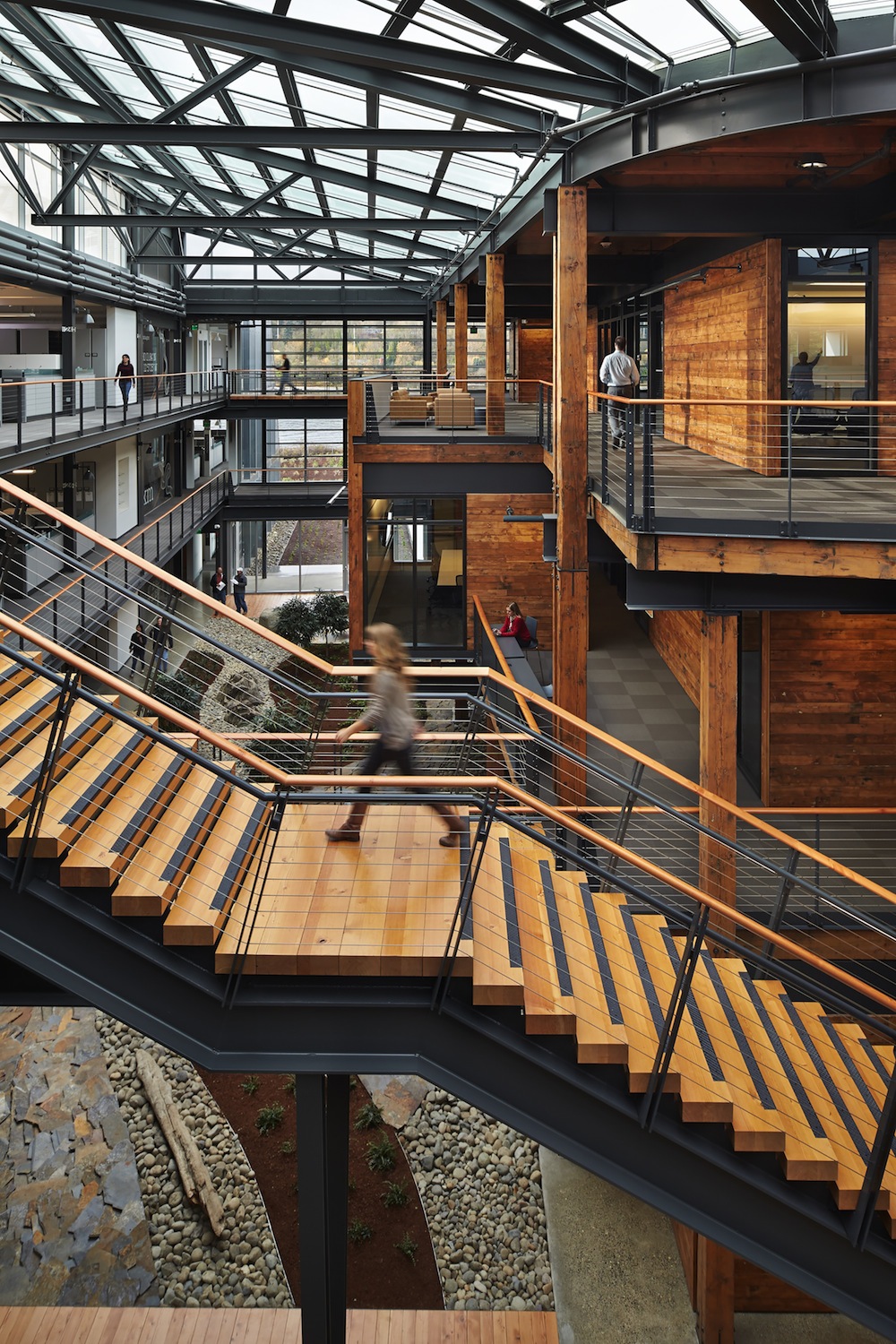
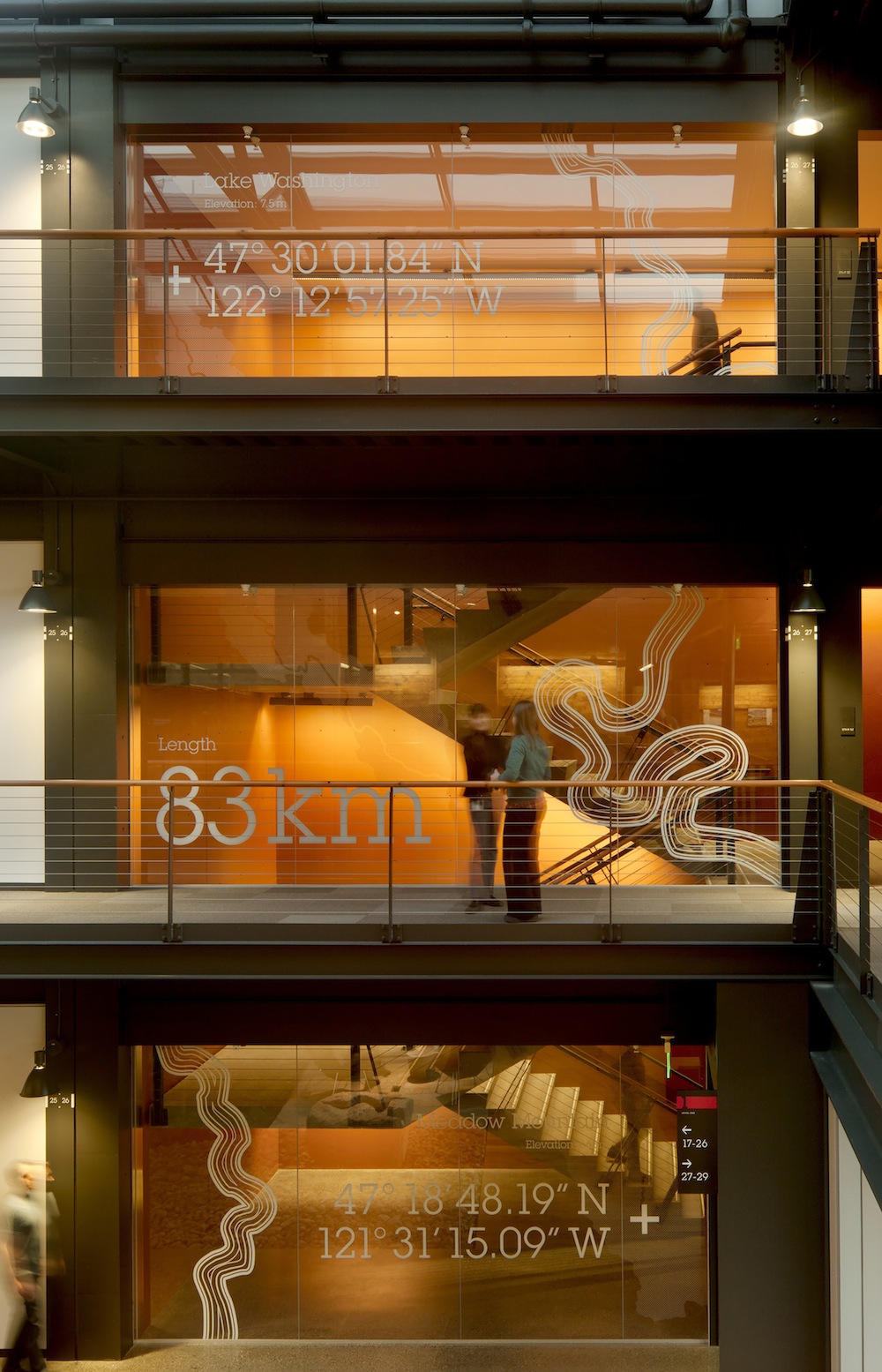
Related Stories
Green | Apr 21, 2023
Top 10 green building projects for 2023
The Harvard University Science and Engineering Complex in Boston and the Westwood Hills Nature Center in St. Louis are among the AIA COTE Top Ten Awards honorees for 2023.
Green | Apr 18, 2023
USGBC and IWBI unveil streamlined certification pathway for LEED and WELL green building programs
The U.S. Green Building Council, Green Business Certification Inc., and the International WELL Building Institute released a streamlined process for projects pursuing certifications for the LEED green building rating system and the WELL Building Standard. The new protocol simplifies documentation for projects that are pursuing both certifications at the same time or that have already earned one certification and are looking to add the other.
K-12 Schools | Apr 18, 2023
ASHRAE offers indoor air quality guide for schools
The American Society of Heating, Refrigerating and Air-Conditioning Engineers (ASHRAE) has released a guide for educators, administrators, and school districts on indoor air quality. The guide can be used as a tool to discuss options to improve indoor air quality based on existing HVAC equipment, regional objectives, and available funding.
Mixed-Use | Apr 7, 2023
New Nashville mixed-use high-rise features curved, stepped massing and wellness focus
Construction recently started on 5 City Blvd, a new 15-story office and mixed-use building in Nashville, Tenn. Located on a uniquely shaped site, the 730,000-sf structure features curved, stepped massing and amenities with a focus on wellness.
Cladding and Facade Systems | Apr 5, 2023
Façade innovation: University of Stuttgart tests a ‘saturated building skin’ for lessening heat islands
HydroSKIN is a façade made with textiles that stores rainwater and uses it later to cool hot building exteriors. The façade innovation consists of an external, multilayered 3D textile that acts as a water collector and evaporator.
Sustainability | Apr 4, 2023
ASHRAE releases Building Performance Standards Guide
Building Performance Standards (BPS): A Technical Resource Guide was created to provide a technical basis for policymakers, building owners, practitioners and other stakeholders interested in developing and implementing a BPS policy. The publication is the first in a series of seven guidebooks by ASHRAE on building decarbonization.
Sustainability | Apr 4, 2023
NIBS report: Decarbonizing the U.S. building sector will require massive, coordinated effort
Decarbonizing the building sector will require a massive, strategic, and coordinated effort by the public and private sectors, according to a report by the National Institute of Building Sciences (NIBS).
Multifamily Housing | Mar 24, 2023
Momentum building for green retrofits in New York City co-ops, condos
Many New York City co-op and condo boards had been resistant to the idea of approving green retrofits and energy-efficiency upgrades, but that reluctance might be in retreat.
Geothermal Technology | Mar 22, 2023
Lendlease secures grants for New York’s largest geothermal residential building
Lendlease and joint venture partner Aware Super, one of Australia’s largest superannuation funds, have acquired $4 million in support from the New York State Energy Research and Development Authority to build a geoexchange system at 1 Java Street in Brooklyn. Once completed, the all-electric property will be the largest residential project in New York State to use a geothermal heat exchange system.
Sustainability | Mar 16, 2023
Lack of standards for carbon accounting hamper emissions reduction
A lack of universally accepted standards for collecting, managing, and storing greenhouse gas emissions data (i.e., carbon accounting) is holding back carbon reduction efforts, according to an essay published by the Rocky Mountain Institute.


